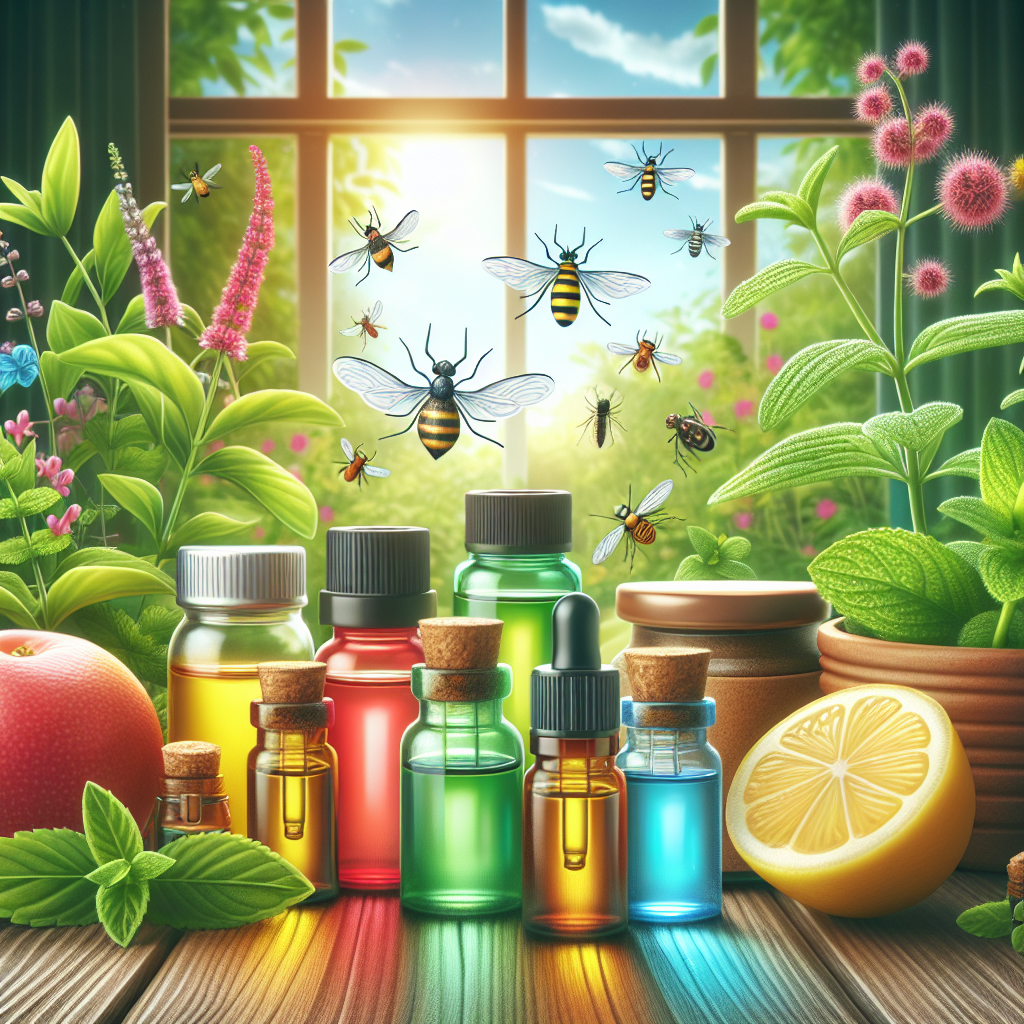Pests can be a significant nuisance, whether indoors or in your garden. Chemical repellents often contain harsh ingredients that can be harmful to both human health and the environment. Enter essential oils: nature’s powerful solution for pest control. This article will guide you through the various ways you can use essential oils as a natural pest repellent.
What Are Essential Oils?
Essential oils are concentrated plant extracts that capture the plant’s natural fragrance and beneficial properties. They’ve been used for centuries in aromatherapy, skincare, and even cooking. More recently, they’ve emerged as effective natural pest repellents. The potent scents and compounds in these oils can confuse or repel insects, making them a safer alternative to synthetic chemicals.
Why Choose Essential Oils Over Chemical Repellents?
Many people are turning to essential oils for pest control due to their multiple benefits:
- Natural Option: Essential oils are derived from plants, making them a more environmentally friendly alternative.
- Non-Toxic: Unlike chemical pesticides, essential oils are generally safe for humans and pets when used appropriately.
- Pleasant Scents: While keeping pests at bay, essential oils can also add a delightful aroma to your living space or garden.
Which Essential Oils Are Best for Pest Control?
Not all essential oils are created equal when it comes to repelling pests. Some of the most effective ones include:
1. Peppermint Oil
Peppermint oil is a natural deterrent for a variety of pests such as spiders, ants, and mosquitoes. Its strong scent masks the smells that attract these pests.
2. Lavender Oil
Known for its calming properties, lavender oil also repels moths, fleas, and mosquitoes. It’s a fantastic option for a pleasant-scented home while reducing bug problems.
3. Tea Tree Oil
Tea tree oil is a potent antibacterial agent that also acts as an insect repellent. It’s particularly effective against mosquitoes and flies.
4. Eucalyptus Oil
Eucalyptus oil is known for its strong aroma which is effective in repelling mosquitoes. It can also help alleviate respiratory issues, making it a dual-purpose oil.
5. Citronella Oil
Widely recognized for its mosquito-repelling properties, citronella oil is commonly used in candles and sprays. It’s a must-have for any outdoor gathering.
How to Use Essential Oils for Pest Repellent
Using essential oils for pest control can be simple and effective. Here are a few methods:
1. Diluted Spray Solution
Create a natural pest repellent spray by mixing essential oils with water. Here’s a quick recipe:
Ingredients:
- 10-15 drops of essential oil (choose from peppermint, tea tree, lavender, or eucalyptus)
- 1 cup of water
- 1 tablespoon of witch hazel or vodka (to help emulsify)
Instructions:
- Combine all ingredients in a spray bottle.
- Shake well before each use.
- Spray around doorways, windowsills, and other entry points in your home or garden.
2. Essential Oil Diffusers
Using a diffuser not only fills your space with a pleasant aroma but also helps to repel pests. Add a few drops of your chosen essential oil to the diffuser and let it work its magic.
3. Soaked Cotton Balls
Soak cotton balls in essential oils and place them in areas where you’ve noticed pest activity, such as under sinks or in cabinets. Replace the cotton balls every few days for maximum effectiveness.
4. DIY Candles
Make your own candles using essential oils like citronella or lavender. This method is perfect for outdoor events when you want to keep pests away while enjoying a lovely ambiance.
5. Pest-Repelling Bath
For outdoor protection, mix a few drops of essential oil into a carrier oil (like coconut oil) and apply it to exposed skin. This is especially helpful for those who are prone to mosquito bites.
Safety Precautions to Keep in Mind
While essential oils are generally safe, it’s crucial to take precautions:
- Patch Test: Before applying any essential oils to your skin, do a patch test to rule out allergic reactions.
- Pet Safety: Some essential oils can be toxic to pets. Always check which oils are safe before use around animals.
- Dilution is Key: Never apply essential oils directly to the skin; always dilute them in a carrier oil or water.
Conclusion
Using essential oils for natural pest repellent is an effective, safe, and environmentally friendly alternative to chemical options. With a variety of oils to choose from and numerous methods for application, you can keep your home and garden pest-free while enjoying the benefits of delightful fragrances. Embrace nature’s solution and let essential oils protect your space with peace and tranquility.
Remember, the most appealing aspect of using essential oils is that you’re not just eliminating pests; you’re enhancing your environment in the process. Why not give it a try today? Happy pest-free living!


